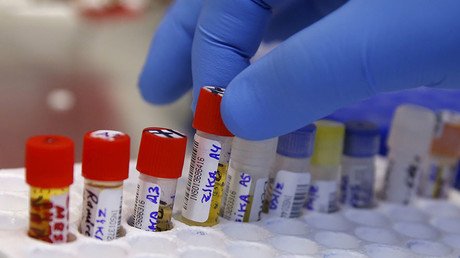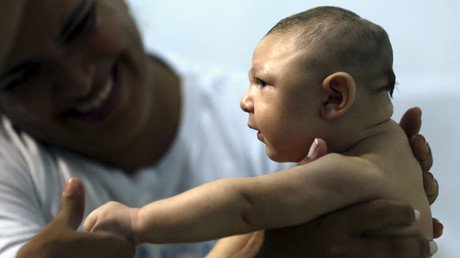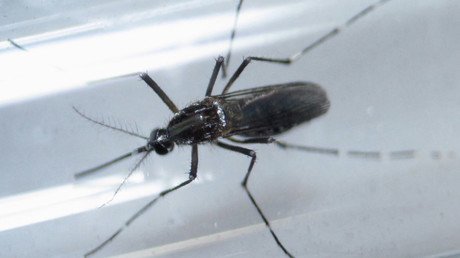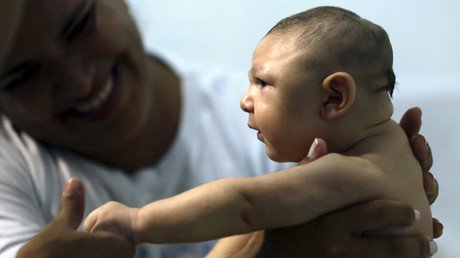Mosquitoes in Miami have transmitted Zika virus – Florida gov
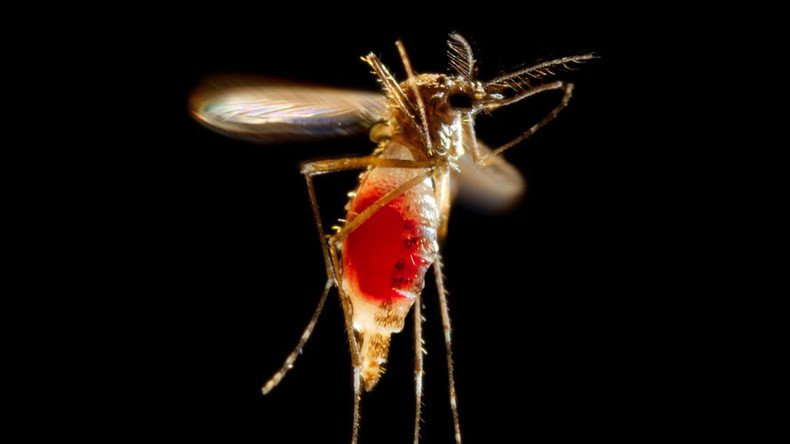
The first known transmissions of the Zika virus in the United States unrelated to travel or sexual contact is believed to have occurred in Florida, the state’s governor has announced. The four people infected live in the Miami area.
“This morning we learned that four people in our state likely have the Zika virus as a result of a mosquito bite," Governor Rick Scott said Friday. "This means Florida has become the first state in our nation to have local transmission of the Zika virus."
FL Health concludes that a high likelihood exists that four #Zika cases are result of local transmission. For more: https://t.co/Jz9SlzCy6t
— Florida Dept. Health (@HealthyFla) July 29, 2016
The three men and one woman believed to be infected with Zika live in Miami-Dade and Broward Counties. The local Zika transmissions occurred in about a one square mile area of Miami's Wynwood neighborhood, according to the Florida Department of Health. Wynwood is just north of downtown Miami. Those in the affected area have been advised to contact their county health department for testing.
Health officials began testing mosquitoes in the area for the virus after reports of potential local transmission, according to news reports.
“While no mosquito traps have tested positive for the Zika virus, the department of health is aggressively testing people in the affected area to ensure there are no other cases of this virus,” said Scott. “As we’ve tested the mosquitoes, we have not found any mosquitoes that we’ve tested through the traps that have the Zika virus.”
In addition to testing Aedes species mosquitoes, Scott said the state will also boost efforts to spray pesticides and educate the public on prevention methods.
Zika can spread through infected mosquitoes or sexual contact. It is particularly dangerous to pregnant women and future mothers asit may cause microcephaly, a neurological birth defect that can cause a newborn's head and brain to turn out smaller than normal, among other developmental issues.
On Thursday, the US Food and Drug Administration asked all blood donation centers in Miami-Dade and Broward Counties to cease collecting donations until all blood can be tested for the virus.
The US Centers for Disease Control and Prevention said there are currently no plans to limit travel to the area.
"Florida currently has the capacity to test 6,609 people for active Zika virus and 2,059 people for Zika antibodies," said Scott. "If we need more test kits, we will immediately request them from the CDC."
Scott has allocated $26.2 million in emergency funding for Zika prevention, while federal lawmakers have yet to agree on emergency funding for the virus.
"This is not just a Florida issue. It's a national issue. We just happen to be at the forefront," said Scott.
Scott said expecting mothers should contact their OB/GYN for more information.
“I urge you to contact your OBGYN for guidance. If you live in Miami-Dade or Broward County, you can get your Zika prevention kit by contacting your OBGYN.”
Scott signed a drastic anti-reproductive choice bill in March, that cut state funding for reproductive health clinics, among other anti-choice provisions similar to those existing in Texas, which were struck down by the US Supreme Court in June.
“As a result of this bill, thousands of people across Florida may no longer be able to access essential reproductive health care, such as cancer screenings, birth control, and well-woman exams,” Cecile Richards, president of Planned Parenthood, said in March. “This cruel bill is designed to rip health care away from those most at risk.’’
Anti’s instead took the opportunity to try to eliminate funding for @PPFA which could help curb the impact of #Zikahttps://t.co/6zASlmagUM
— PP Generation Action (@PPGenAction) July 29, 2016
Florida identified its first travel-related case of the Zika virus in February. As of July 27, more than 1,600 cases of Zika have been reported in the continental United States and Hawaii, but none of those are believed to have been the result of local mosquito transmission, the CDC said.
